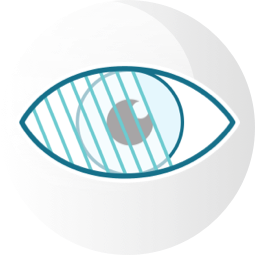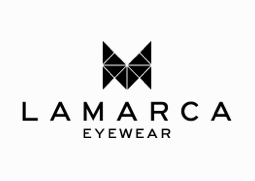Navigating the world of insurance can feel complicated, especially when it comes to specific services like eye care. Many people wonder whether their standard health insurance policy will cover a routine eye exam or if they need a separate vision plan. Unfortunately, there isn’t a one-size-fits-all answer, because whether health insurance covers your eye exams depends on the insurance and plan you have.
That’s why understanding your coverage is the first step toward effectively managing both your eye health and budget.
Why Are Regular Eye Exams So Important?
Routine eye exams are about more than just checking if you need glasses. They’re a critical part of your overall healthcare. During a comprehensive exam, an eye doctor not only assesses your vision, but they also check for serious eye conditions like glaucoma, cataracts, and macular degeneration, which often have no early symptoms.
An eye exam can also reveal signs of other health problems throughout your body. Conditions such as diabetes, high blood pressure, and even certain types of cancer can be detected through changes in your eyes.
Understanding Your Insurance Coverage for Eye Care
When it comes to paying for eye care, coverage typically falls into 2 main categories: health insurance and vision insurance. While they sometimes overlap, they’re designed to cover different aspects of your eye health.
Health Insurance Plans
Standard health insurance is primarily focused on medical issues. It generally covers eye care related to a medical condition, injury, or disease. If you experience eye pain, infection, or symptoms of a condition like glaucoma, your health insurance will likely cover the visit to an ophthalmologist.
But many health insurance plans do not cover routine eye exams for vision correction, such as prescribing glasses or contact lenses.
Employer-Sponsored Plans
Many people get health insurance through their job. These plans vary widely. Some may include basic vision benefits, but employers may offer a separate, optional vision insurance plan that employees can purchase for an additional premium.
Individual & Family Plans
If you buy insurance on your own through the Health Insurance Marketplace or directly from an insurer, the coverage details depend on the plan you choose. Under the Affordable Care Act (ACA), vision coverage for adults is not considered an essential health benefit, which means that individual and family plans are not required to cover routine eye exams. But for children, pediatric vision services, including an annual eye exam and 1 pair of glasses, are an essential health benefit and must be covered.

Medicare
Medicare does not cover routine eye exams for glasses or contact lenses. But it does cover medically necessary eye care. This coverage includes treatment for conditions like cataracts, glaucoma, and macular degeneration.
Medicaid
Medicaid coverage for vision care varies by state. For children under 21, all state Medicaid programs are required to provide comprehensive vision benefits, including eye exams and glasses. For adults, vision coverage is an optional benefit, and states can decide whether to provide it. Many states cover routine eye exams for adults, but the scope of coverage can vary.
Vision Insurance Plans
Vision insurance is a separate type of policy specifically designed to help cover the costs of routine, preventive eye care. The exact coverage varies by provider, but these plans function more like a wellness benefit plan rather than traditional medical insurance.
A typical vision insurance plan will cover or provide a significant discount on:
- Annual comprehensive eye exams
- Eyeglass frames and lenses
- Contact lenses
What to Look For in Your Policy
To determine what your plan covers, carefully review your policy documents. Look for specific sections related to eye care.
Eye Exam Coverage
Check for language that distinguishes between “routine” and “medical” eye exams. Your policy might cover one but not the other. A routine exam is for preventive care and vision correction, while a medical exam is to diagnose or treat a specific eye disease or injury.
Health Insurance Benefits
If you’re reviewing your health insurance plan, look for a section on “specialist visits.” This section will tell you what your copay or coinsurance is for seeing a specialist like an ophthalmologist.
Vision Care
If you have a vision plan, your documents will outline specific allowances and copays.
Steps to Confirm Your Coverage
If your policy documents are unclear, don’t guess. Taking a few simple steps can give you a definitive answer.
Read Your Policy Carefully
Start by locating your Summary of Benefits and Coverage (SBC). This document provides a straightforward overview of what your plan covers. You can usually find it on your insurance provider’s online portal or request a copy.
Contact Your Provider
The most reliable way to get answers is to call your insurance company directly. When you call, be prepared to ask specific questions:
- Does my plan cover routine eye exams?
- Do I need a referral from my primary care doctor to see an eye specialist?
- What are my copay, coinsurance, and deductible for vision services?
- Is there a distinction in coverage between an optometrist and an ophthalmologist?
Ask About In-Network Providers
Most insurance plans have a network of doctors and facilities they partner with. Using an “in-network” provider is almost always cheaper than going “out-of-network.” Ask your insurance company for a list of in-network eye doctors in your area, or use their online provider directory. Before booking an appointment, it’s always a good idea to call the doctor’s office and confirm that they still accept your insurance plan.
Take Control of Your Eye Health Today
Understanding your insurance coverage is a key part of proactive healthcare. While many standard health insurance plans cover medically necessary eye care, you may need a separate vision insurance plan for routine exams and corrective lenses.
Don’t let uncertainty about cost prevent you from scheduling an exam. Your vision is too important to neglect. Contact our team at McCauley Celin Eyecare Associates to discuss your insurance options or flexible payment plans.














